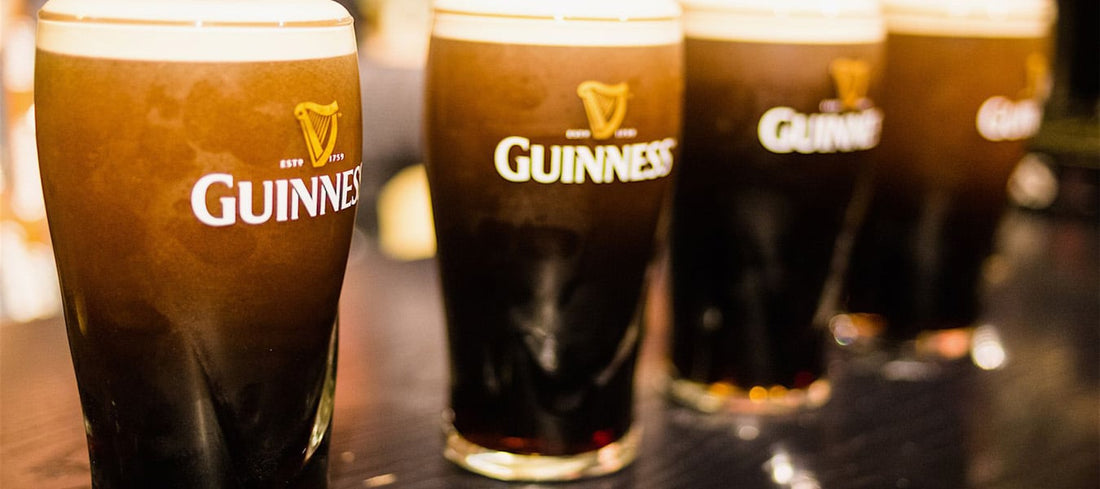Beer, like the human body, is mostly water. In fact, it’s so important that differences in the water in different regions affect the taste of beer. Looking around at the established brewing regions in the world, a common thing that pops out is the availability of great water. In Layman's terms, great water leads to great beer. No matter if you are a big brewer, a microbrewery or a home brewer, it’s imperative to have a comprehensive understanding of the impact of water on beer’s flavour.
The Chemistry Behind Brewing Beer
In its purest form, beer is made up of 4 ingredients – Hops, Yeast, Grains, and Water. With only a few ingredients in the recipe, it should be easy to realise why water needs to be perfect and most important out of all the ingredients. Assessment of brewing water in the Czech Republic beers was found to be of low mineral content which is soft water. This works well to produce lagers and pilsners. On the other hand, mineral-rich hard water in Ireland is perfect for producing stouts such as the likes of Guinness & Murphy’s. It’s not just about whether you should use hard or soft water. Making the perfect beer involves accounting for the entire chemical makeup of the water you’re using for brewing.
Calcium is one of the minerals that lead to hardness in water. For perfect beer, the water needs to be moderately hard, typically in the range of 50 mg/L to 150 mg/L. Excessive hardness in water can cause hops to cling to calcium, thus producing hoppier beers. Water softeners work well to reduce hardness levels considerably but, in the process, leave sodium ions in the water. On the other hand, calcium also influences the pH of the brewing water. Acids are extracted from grains during the boiling process. Excessive alkalinity in water can neutralise those acids and depress the flavours and even tease out wine-like characteristics in the beer.
Magnesium is another terror element that adds to the hardness of water. Unlike calcium, magnesium does not affect the pH of the brewing water. However, magnesium aids the fermentation process but too much of it can lead to a bitter taste. The recommended levels of magnesium in water are 10 mg/L and 30 mg/L.
Sodium, when compared to other minerals in the water, has minimal effect on the flavour and taste of beer. However, it does impact the mouthfeel. Too much sodium content creates a metallic taste in the final product. Hence, softened water is not used for brewing beer.
Chlorine & Chlorides in water, just like sodium, impact the mouthfeel and make beer taste fuller or sweeter. On the other hand, chlorine is not desirable in brewing water. It is used as a disinfectant in water and would have a negative impact on the finished product.
Suphates accentuate hop bitterness, making it drier and crispier. While also playing a secondary role in lowering pH levels, it produces the opposite effect of chloride.
Finding the Perfect Balance
While all the constituent minerals in water can enhance beer’s flavour in desirable ways, you can quickly have too much of a good thing. High levels of sulphates would make hop acerbic while excessive chloride will impart a medicinal off-flavour to the beer. A water test reveals the chemistry of the water helping you better understand if it needs treatment. As a brewer, you would want to see Total Alkalinity less than 100 ppm and Total Hardness close to 150 ppm. A common practice is to start with low hardness, low alkalinity water source and add brewing salts to the mash.
Why Best Brewers Use Reverse Osmosis Water?
The RO water treatment method removes impurities, minerals and anything else present in the water source to leave brewers with “baseline” water. Brewers throughout history have adjusted their brewing water to achieve specific results. Commercial reverse osmosis filters strip it down to almost pure H2O. In simple words, RO water is a blank canvas to be coloured by the brewer. If the brewery is in an excessively hard water area just like Dublin, a Water softener should be installed just before a reverse osmosis system as it increases the lifespan of the RO membrane.
Are you a brewery or micro-brewery looking for a water treatment solution? Look no further. Book a consultation below or call Celtic Water Solutions.

